*Diospyros kaki
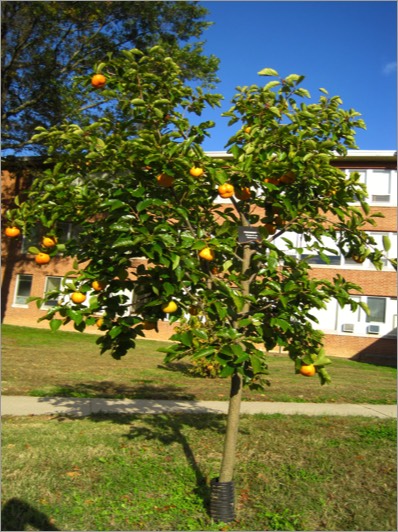
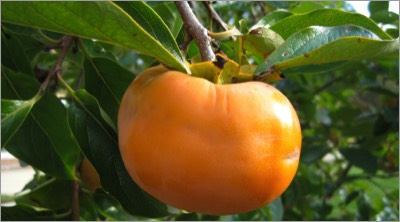
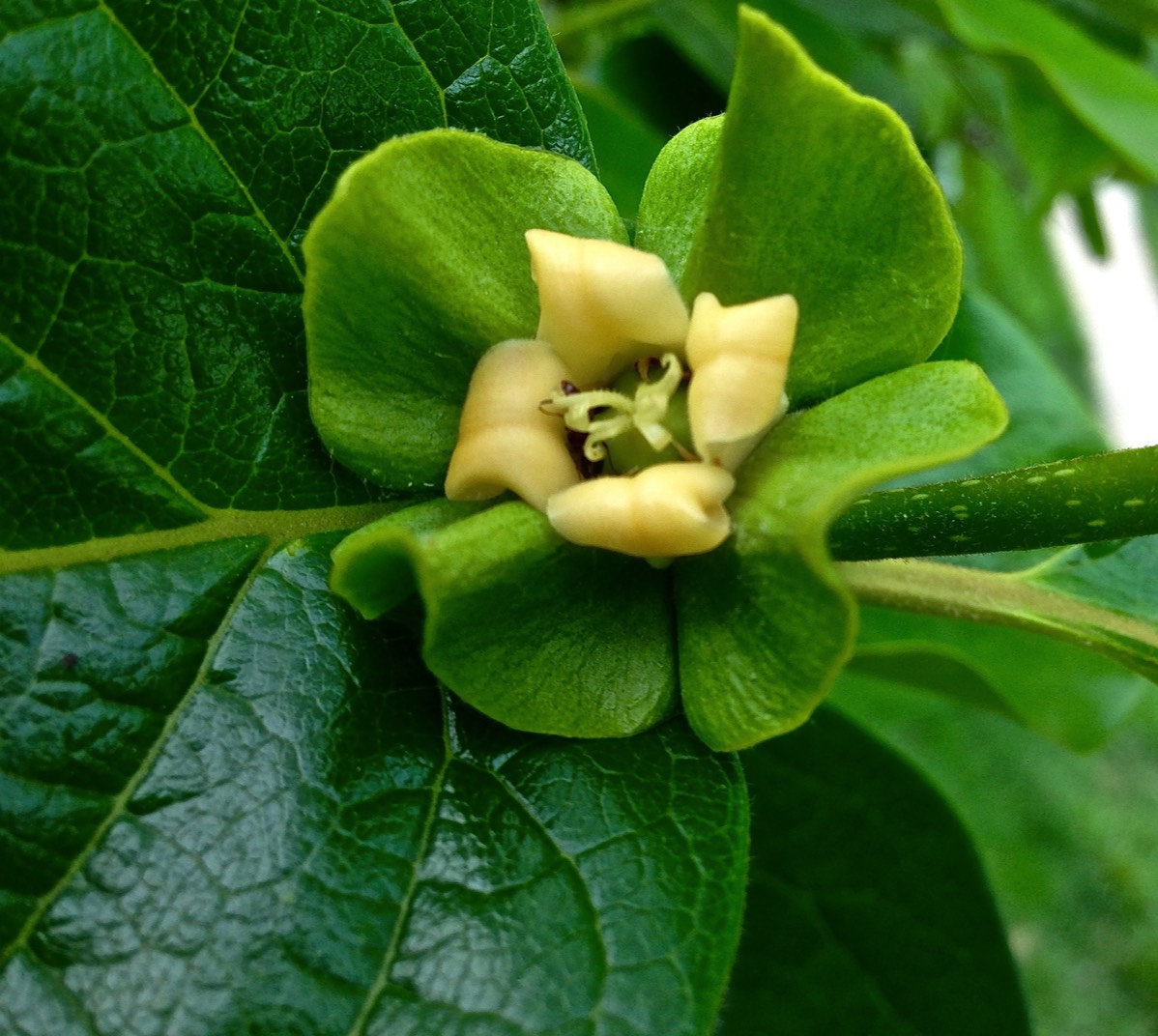
*Diospyros kaki
JAPANESE PERSIMMON
Ebenaceae
Asia
Location: map coordinates K-11 (west of Conwell Hall),
N 39°11'13'' W 75°32'43''
Planting history: planted 5/6/10. Source: Willey Farms, DE. (Dr. S. Yost, USDA NIFA Capacity Building Grant funds).
Description:
*Non-native species (not native to Delaware)
JAPANESE PERSIMMON
Ebenaceae
Asia
Location: map coordinates K-11 (west of Conwell Hall),
N 39°11'13'' W 75°32'43''
Planting history: planted 5/6/10. Source: Willey Farms, DE. (Dr. S. Yost, USDA NIFA Capacity Building Grant funds).
Description:
- deciduous tree
- etymology: Diospyros from Greek dios = divine, and pyros = wheat (referring to the edible fruit); kaki = the Japanese name
- leaf simple, rather large (4”-8” long)
- trees usually dioecious (separate male and female trees), but sometimes both male and female flowers on same tree
- fruits orange, 2”-4” diameter; soft and sweet when ripe. If not fully ripe, notably astringent (causes mouth to pucker); said to be less astringent after a frost, but this is probably more a matter of timing and ripeness. It’s best to avoid eating large quantities of persimmon skins, which has been linked to formation of hard masses (diospyrobezoars) in the digestive tract
- in the Ebony family; wood hard, strong, heavy
- prefers full sun, moist well-drained soil; has good drought-tolerance
- this is the most commonly cultivated species of persimmon
*Non-native species (not native to Delaware)
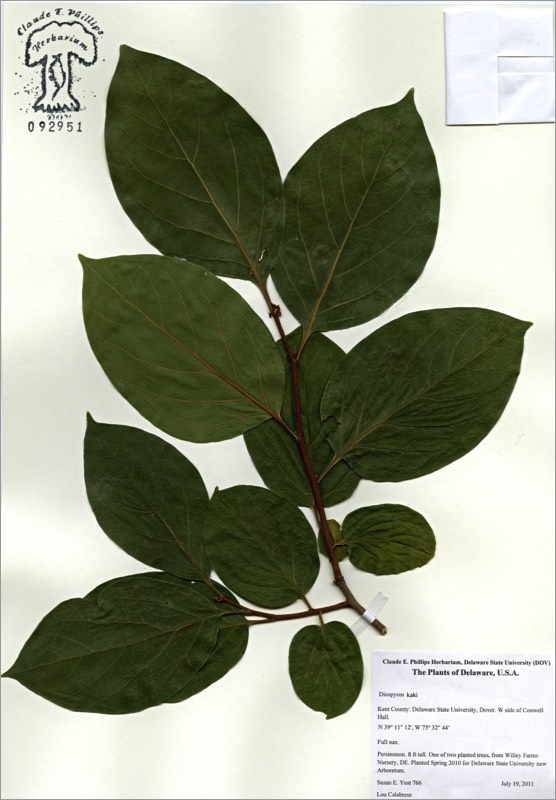
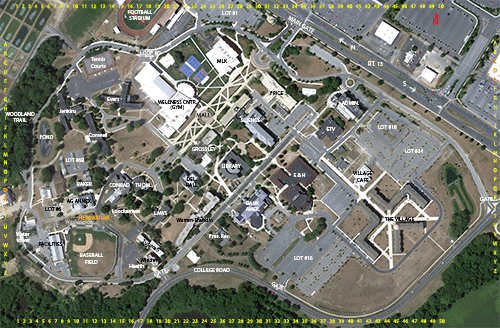
HIT REFRESH TO START LOCATION GRAPHIC